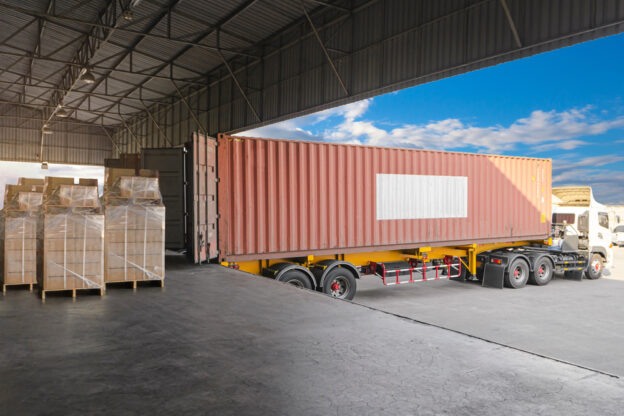Understanding what affects load pay helps both company drivers and owner-operators make informed decisions. Several key variables impact how much a driver can expect to earn from a particular haul.
But how much do box truck loads pay? What are the highest-paying truckloads in general? The answers to those questions require you to keep a few key things in mind.
Factors that Influence Load Pay
Freight Type
One of the biggest factors that influences load pay ultimately comes down to freight type. Pay rates will vary due to not only the specific types of items being transported, but also the complexity and the risk involved. Hazardous materials, for example, often pay more due to dramatically increased regulatory oversight.
Oftentimes, high-value goods may also offer higher rates because there is an increased level of responsibility that comes with them.
Distance
Depending on the length of transportation, some loads might not be paid by the mile. Instead, drivers will get paid a specialty fee for the length of the trip. Having said that, some short-haul trips might pay out at a higher rate per mile to make the job worth it.
Weight & Volume
Heavier or bulkier freight usually means more wear and tear on equipment and higher fuel consumption, which translates to increased compensation. This is especially true when it comes to full truckloads, often commonly referred to as FTL loads for short.
Specialized Skills / Endorsements
Obviously, when you’re talking about transporting heavy equipment, a driver will need a commercial vehicle license or CDL. But some freight goes beyond that, requiring CDL endorsements or even specialized training. These types of jobs come with premium pay for the efforts.
Examples of this include, but are certainly not limited to, things like hazmat certifications, tanker endorsements, and more. Not only that, but drivers with these credentials are higher in demand – and can ask for better rates – when negotiating their next job.
Urgency
As is true with just about any other industry, if a job needs to be completed quickly, you can expect to pay an additional fee on top of it. Expedited freight is no different, and items like medical supplies, essential repair parts, and others are prime examples of this. Not only do same-day or next-day deliveries often add to the amount a driver can make, but working on the weekend or holidays can as well.
Seasonality
Finally, seasonality will likely impact the amount that a driver can expect to earn for different hauls based solely on how it will increase supply and demand. If you live and work in an area with a lot of agricultural activity, for example, harvest season will likely see a boost in your pay. Because of events like Black Friday and Cyber Monday, and their importance.
Common Haul Types & Average Pay
Dry Van
Dry van drivers start at $0.45 per mile for a company and $1.50 per mile as an owner-operator.
Reefer
Refrigerated drivers start at $0.50 per mile for a company and $1.75 per mile as an owner-operator.
Flatbed
Flatbed truck drivers start at $0.55 per mile for a company and $2.00 per mile for an owner-operator.
Tanker
Tanker truck drivers start at $0.60 per mile for a company and $2.25 per mile for an owner-operator.
Oversized
Most oversized load operators make between $3.00 and $6.00 or more per mile, depending on the scope of the job.
LTL
Typically, less-than-truckload drivers will get paid an hourly rate if they’re working for a company. The rate for an owner operator can vary wildly depending on all the factors outlined above, which makes it difficult to assign a single number to it.
Regional Pay Differences
As one might expect based on all of the above, rates can also vary pretty wildly depending on which region of the country you’re driving in. On the West Coast, for example, you may be dealing with a high volume of freight, but the area itself is also highly competitive, as there are a lot of drivers to go around. The best rates tend to be those found around the ports.
In the Midwest, there is a strong manufacturing industry presence. Because of that, freight volumes tend to be consistent all year round. They don’t necessarily vary significantly with the seasons like they do in other areas.
In the south, drivers often have to contend with a lower pay per mile, comparatively speaking, of course. Having said that, the area is also known for having a lower cost of living.
Thanks to tighter delivery windows and congestion all around, the northeast tends to pay higher rates.
Finally, you have many of those mountain states that may not be heavily populated, but that will often surprise you due to the rates drivers can make. It has a lot to do with the fact that the roads are very challenging when you’re trying to haul heavy equipment up or down a mountain.
Owner Operators vs Company Drivers
As you advance your career, you will need to wrestle with an important choice: do you become an owner operator or a company driver?
Owner-operators set their own schedule and choose the loads that they’re willing to take on. They take on more control over the finished product, but also more risk. They tend to have a higher gross pay, ranging anywhere from $1.50 to $3.00 or more per mile, depending on where you live. Having said that, they are also responsible for fuel for their vehicle, maintenance, insurance, paying their own taxes, and more.
Company drivers, on the other hand, have less freedom but far more stability than their owner-operator counterparts. They may only make between $0.40 and $0.80 per mile, but benefits will typically be included. This is the benefit of working with a company as opposed to on your own. You get to collect a paycheck with far fewer business-related issues to concern yourself with.
So, which one is best? The answer to that question will obviously vary depending on the individual. Some want the freedom and the increased pay per mile that only comes with being an owner-operator. Others will want the steadiness of working directly for a company over the long term. Only you can decide.
How Factoring Can Smooth Out Cash Flow
Freight factoring, and by association, the companies that offer it, like Advanced Commercial Capital, can help smooth out your cash flow as a truck driver in a variety of ways. At a high level, they buy your invoices and pay you immediately, minus a small fee for the service. This can help not only cover any fuel and maintenance costs that you’re dealing with, but can also help avoid late bill payments, and more. But more than anything, it’s a way to keep cash flow steady, which is especially critical for new drivers in particular.
If you’d like to find out more information about truckload pay and what drivers can earn for different hauls, or if you have any additional questions that you’d like to go over with someone in a bit more detail, please don’t hesitate to contact Advanced Commercial Capital today.


